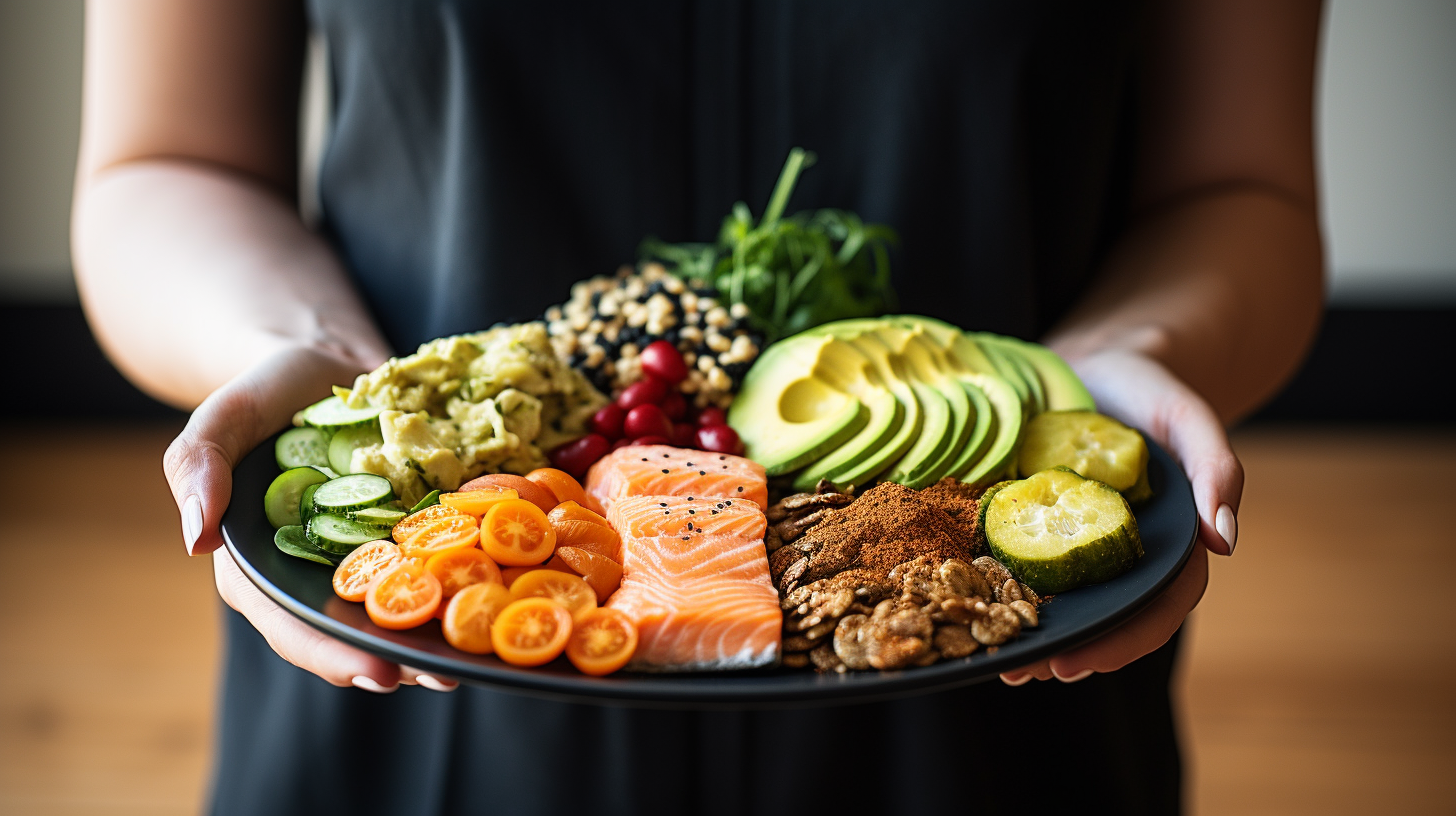
Nutritional Education Essentials: Mastering Weight Loss
Nutritional education is vital in weight loss, providing individuals with the knowledge and skills to make healthy and sustainable food choices. Critical components of a nutrition education program for weight loss include:
- Involving family members to create a supportive environment.
- Providing practical and relevant nutrition information.
- Utilizing experienced and educated individuals to educate about nutritious food choices.
Nutritional education also addresses the impact of diet on chronic diseases and obesity, aiming to combat these issues through teaching nutritious food choices and shaping healthy behaviors. By changing habits and reducing the intake of unhealthy foods, nutrition education directly benefits individuals in their weight loss journey. It is essential to include diet specifics and methods for weight control to ensure long-term success. With nutrition education, individuals can positively change their diet and lifestyle, ultimately improving their health and well-being.

Meal Planning
Meal planning is organizing and preparing meals ahead of time, typically for a week or longer. It is a crucial aspect of weight management as it allows individuals to control their food choices and portion sizes, leading to healthier eating habits. By carefully planning meals, individuals can ensure they consume the right balance of nutrients and calories, which is essential for achieving weight loss goals.
When planning meals for weight management, it is essential to consider meal timing recommendations. This includes distributing calories over the day and focusing on consuming a high-calorie breakfast to kickstart metabolism and provide energy for the day ahead. Maintaining consistent overnight fasting periods, such as intermittent fasting, can also benefit weight management. By aligning meal planning with these timing recommendations, individuals can optimize their body’s natural rhythms and improve overall metabolic health.
Healthy Eating Habits
Healthy eating habits play a crucial role in achieving and maintaining weight loss. Individuals can successfully manage their weight by following fundamental principles such as eating balanced meals, watching portions, choosing low-calorie snacks, eating only when hungry, and finding alternative activities to distract from food. Balanced meals that include a variety of nutrients and food groups are essential for providing the body with the energy and nutrients it needs to function correctly while monitoring portion sizes helps to prevent overeating. Choosing low-calorie snacks can help individuals stay within their daily calorie limits, and eating only when hungry can prevent mindless snacking. Additionally, finding alternative activities to distract from food can help break the emotional or boredom eating cycle.
In addition to healthy eating habits, incorporating regular exercise into the daily routine is essential for supporting weight loss and overall health. Physical activity not only helps to burn calories but also improves general fitness and well-being. Seeking emotional support, whether from friends, family, or a support group, can also be beneficial for maintaining healthy eating habits and weight loss, as it can provide encouragement, motivation, and accountability. By adopting and embracing these principles, individuals can make sustainable changes to their lifestyle and achieve their weight loss goals.

Macronutrients
Macronutrients are essential nutrients that provide energy and support various bodily functions. The three main macronutrients are carbohydrates, proteins, and fats. Each plays a crucial role in the diet, with carbohydrates being the body’s primary energy source, proteins supporting muscle growth and repair, and fats aiding in nutrient absorption and hormone production.
These macronutrients’ quality and food sources are essential for chronic disease prevention and weight control. Research has also shown the potential benefits of a higher protein, lower carbohydrate approach for weight management, as protein can increase feelings of fullness and reduce overall calorie intake. Understanding the role of micronutrients in the diet and making informed choices about their quality and food sources is essential for achieving and maintaining a healthy weight.

Portion Control
Portion control is crucial to managing food consumption, especially regarding weight loss. Research has shown that larger portions often lead to increased food intake, which can contribute to overeating and higher calorie intake. By practicing portion control, individuals can prevent overeating and reduce their overall calorie intake, ultimately aiding in weight loss.
Various strategies and techniques exist for implementing portion control in daily meals and snacks, such as using smaller plates, measuring serving sizes, and being mindful of portions when eating out. Incorporating these strategies into a regular eating routine can help individuals manage their food consumption and achieve their weight loss goals. By focusing on portion control, individuals can take a proactive approach to their nutritional education for weight loss and reap the benefits of better managing their food intake.
Mindful Eating
Mindful eating is an approach that encourages individuals to become more in tune with their body’s hunger and fullness cues, as well as the emotions that may trigger them to eat. By practicing being fully present and engaged in the eating experience, individuals can focus on their food’s taste, texture, and smell. Taking the time to chew slowly and savor each bite allows individuals to pay attention to how their body feels as they eat, promoting a greater awareness of their eating habits and allowing for a more balanced and healthy relationship with food. By incorporating mindful eating into their daily routine, individuals can cultivate a more conscious and intentional approach to their eating habits.
Empower Your Weight Loss Journey with Nutritional Education
Nutritional education is the cornerstone of successful weight loss, equipping individuals with the tools and knowledge needed for sustainable lifestyle changes. By understanding the role of nutrition, you can take proactive steps towards achieving your weight loss goals. Regner Health Solutions is here to support you on your journey. Contact us today at (952) 900-3994 to schedule a weight loss consultation and embark on improved health and well-being.
We proudly provide weight loss services for these areas of Bloomington, MN:
East Bloomington, North Corridor Park, East Bloomington South, West Bloomington, West Bloomington North, Nord Myr Park, Canterbury Park, Anderson Park, Bloomington Southwest, Bloomington South, Oxboro, Bloomington Ferry, South Loop District, Penn-American, Skriebakken Park, Heritage Hills Park, Lake Girard Park, Bryant Park, and Bloomington Northeast.
We also provide medical weight loss services for people from these areas near Bloomington, MN:
Minneapolis, Mendota Heights, Burnsville, Eagan, Edina, Richfield, Savage, Eden Prairie, Saint Paul, Hopkins, Prior Lake, Minnetonka, Shakopee, Mendota, Chanhassen, Lakeville, Rosemount, Excelsior, Chaska, Wayzata, Inver Grove Heights, Navarre, Minnetonka Beach, Farmington, South Saint Paul, Victoria, Spring Park, Long Lake, Carver, Newport, Saint Paul Park, Mound, New Market, Elko, Jordan, Webster, Cottage Grove, Maple Plain, Hamel, Saint Bonifacius, Osseo, Vermillion, Castle Rock, Loretto, Cologne, Waconia, New Prague, Hampton, Champlin, Lake Elmo, Hastings, Willernie, Circle Pines, Lonsdale, Randolph, Belle Plaine, Watertown, Delano, Rockford, Hanover, Hugo, and Cannon Falls.



